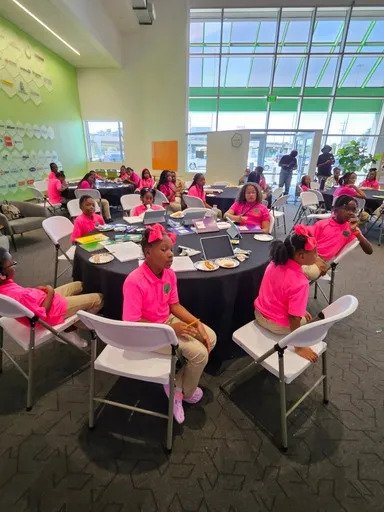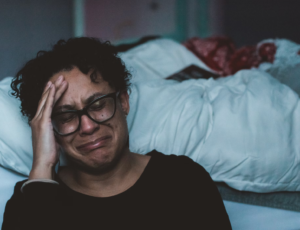The nonprofit group focused on increasing representation in STEM hopes to get two million Black girls to pursue STEM careers by 2050.
In the 2016 film “Hidden Figures,” the world watched Taraji P. Henson, Octavia Spencer, and Janelle Monae portray three talented mathematicians who were vital to NASA’s space missions during the 1960s. And in the “Black Panther” film series, Letitia Wright plays Shuri, an innovator and scientist tasked with saving her brother and her home countless times without failure.
In more ways than one, the arts, literature, and film have reflected Black women as valuable assets in the fields of science, technology, engineering, and math. But organizations like Black Girls Do Engineer are making representation a reality for young women.
Only 20% of all engineering bachelor’s degree holders are women, and for women of color, the numbers are even smaller. Less than 4% of engineering bachelor’s degrees are awarded to African American, Hispanic, and Native American women combined, and “for African American women that percentage is declining,” according to the Society of Women Engineers.
Kara Branch, founder and CEO of BGDE, says the goal of her nonprofit is to provide girls with access, awareness, and exposure to the world of STEM as early as 6-years-old.
“We started in 2019. A lot of the girls who started with us are still in this program, so we’ve watched girls grow up, go into college, and are going into these spaces,” Branch tells Word In Black. “So we are not just popping up and offering them a service. We are staying with them throughout the whole process.”
Branch, who received a bachelor’s degree in chemical engineering from Prairie View A&M, says throughout her time in the aerospace and tech areas, she’s always been the only Black woman in the room, and ultimately, she wants to increase the population of future Black women who’d occupy the space.
Headquartered in Houston, BDGE also has chapters in Los Angeles and New Orleans and advocates for two million Black American girls to pursue science, technology, engineering, and math. careers by the year 2050. One way they hope to reach that goal is to present parents and communities with an opportunity to enroll their daughters in an immersive experience.
“A lot of times my mom will come up to the school, they will always say to my mom, your daughter is very smart, but no one ever told my mom what to do with her smart daughter,” Branch says.
The young women in the program are introduced to artificial intelligence (AI), coding, robotics, all things energy, medical programs, aerospace, production, and all branches of engineering. In addition, students are offered enrichment programs like financial literacy, mentorship, and college prep training.
Participants are taught by STEM professionals like dentist Dr. Adeola Moore, and computer engineer Freddie Sherrill Jr. BGDE also offers an annual $10,000 scholarship to parents with financial hardships.
“I want to serve as a mentor to many girls that look like me in my community and give them what no one has given me,” Branch says.
Reprinted from Word In Black




